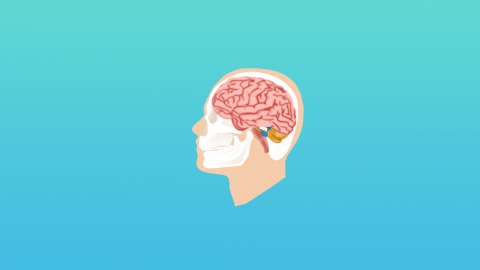Why are brain cells not regenerative?
Under normal circumstances, the main reasons why brain cells cannot regenerate include their high degree of cell differentiation, oxidative stress damage, lack of regenerative-related stem cells, inflammatory responses after brain injury, and glial scar formation. If discomfort symptoms occur, timely consultation and treatment at a regular hospital are recommended. Detailed explanations are as follows:
1. High Degree of Cell Differentiation
Brain cells are highly differentiated cells whose morphology and function have become highly specialized, losing the ability to divide and proliferate. Once damaged or dead, they cannot regenerate. Daily protection of the brain is important to avoid head injuries, and brain function can be exercised through reading, learning, and similar activities to delay brain cell degeneration.
2. Oxidative Stress Damage
Brain cells have active metabolism and are prone to oxidative stress reactions. Excessive free radicals can damage brain cell DNA and structures, leading to functional loss and inability to regenerate. Antioxidant medications such as vitamin C tablets, vitamin E soft capsules, and glutathione tablets may be used under medical guidance to reduce oxidative stress-induced brain cell damage.

3. Lack of Regenerative Stem Cells
The brain tissue lacks sufficient stem cells with regenerative capabilities, making it impossible to differentiate and replace dead brain cells, thus hindering brain cell regeneration. A proper intake of foods rich in brain-derived neurotrophic factors, such as deep-sea fish and nuts, can provide nutritional support for brain cells.
4. Inflammatory Response After Brain Injury
Brain injury may trigger localized inflammation, and the released inflammatory factors can further damage surrounding brain cells and inhibit mechanisms related to brain cell regeneration. Anti-inflammatory drugs such as aspirin enteric-coated tablets, ibuprofen sustained-release capsules, and celecoxib capsules may be used under medical guidance to reduce inflammation and protect brain cells.
5. Glial Scar Formation
After brain injury, glial cells proliferate and form scars. These scars hinder the regeneration and reconnection of nerve cells, affecting brain cell regeneration. When necessary, glial scar resection may be performed following medical evaluation to create conditions favorable for brain cell regeneration.
In daily life, maintaining a regular routine, ensuring adequate sleep, and avoiding staying up late are important. A balanced diet rich in proteins and vitamins should be maintained. Appropriate physical exercise can promote cerebral blood circulation, while behaviors such as smoking and excessive alcohol consumption that damage brain cells should be avoided.




